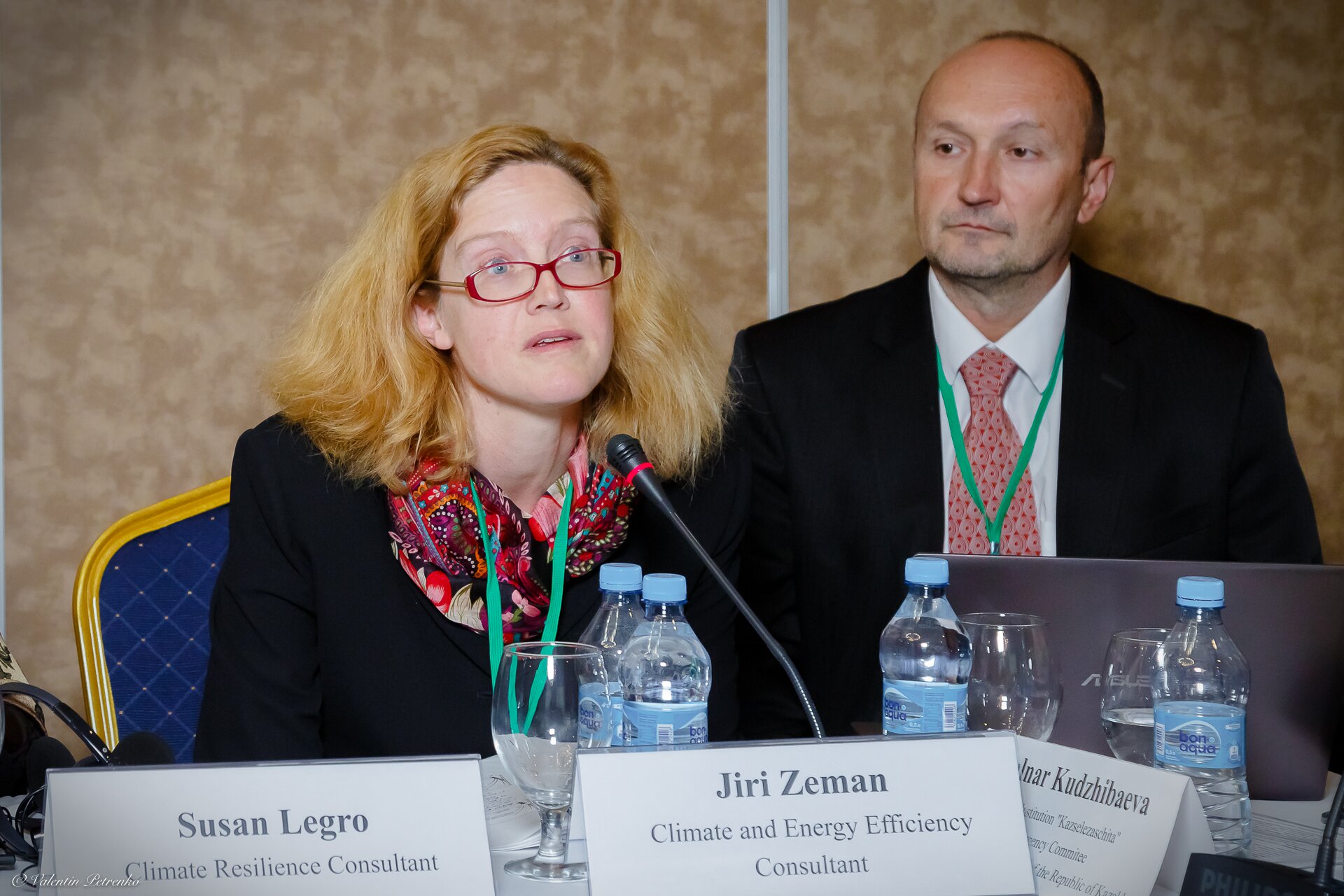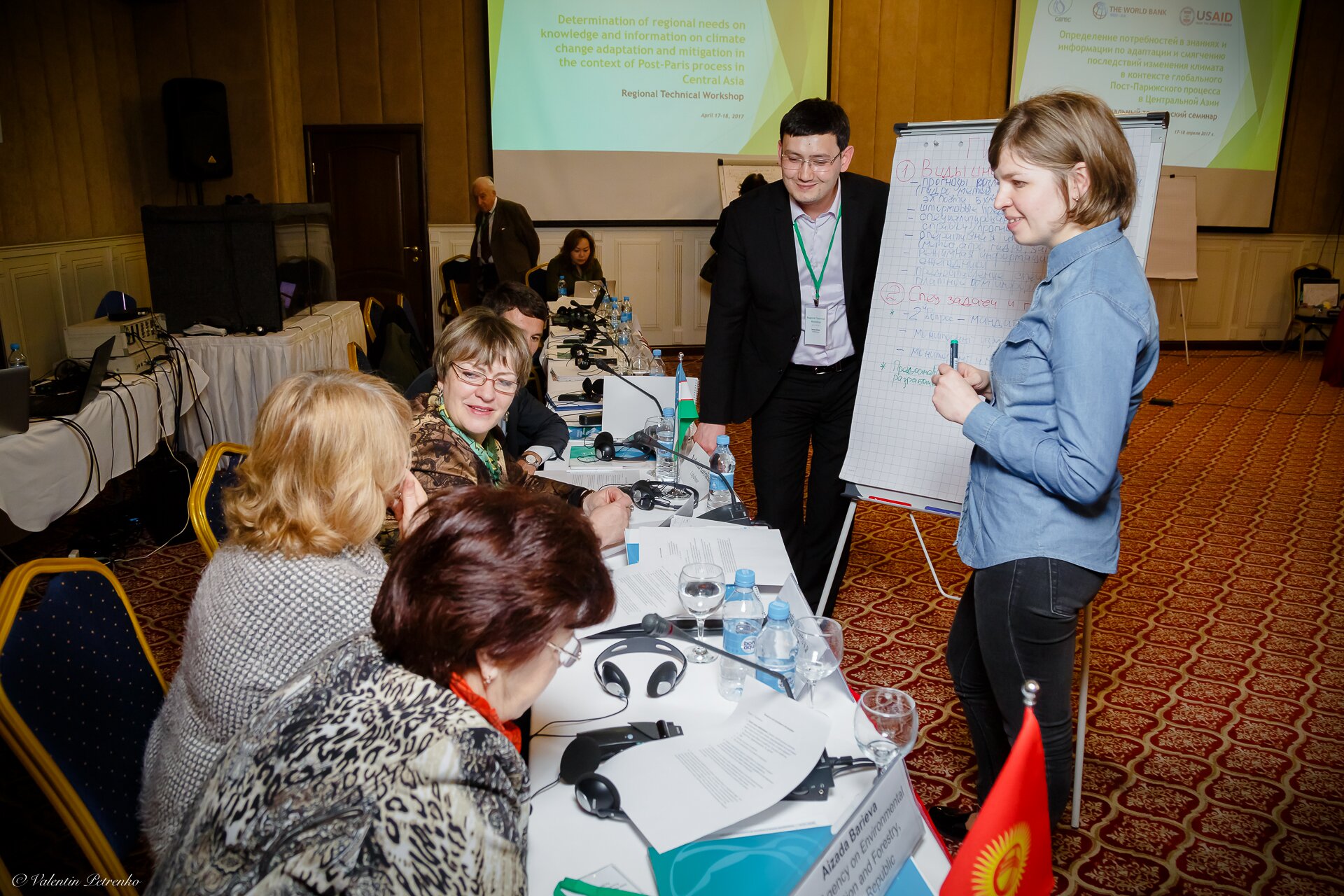The first results of needs assessment for climate knowledge
April 17-18, 2017, Almaty hosted the regional technical workshop to identify knowledge and information needs for adaptation and mitigation of climate change in the context of the global post-Paris process in Central Asia.
 During the seminar, international consultants Susan Legro and Jiri Zeman with the assistance of national consultants from Central Asian countries reported on the first results in identifying needs for climate knowledge, services and capacity. The analysis showed that the most requested data is forecasts, early warning systems, adaptation plans.
During the seminar, international consultants Susan Legro and Jiri Zeman with the assistance of national consultants from Central Asian countries reported on the first results in identifying needs for climate knowledge, services and capacity. The analysis showed that the most requested data is forecasts, early warning systems, adaptation plans.
Participants took part in an interactive session to identify knowledge needs in which they were divided into groups: the HydroMets, universities and research institutes, government organizations and NGOs.
For example, the HydroMets highlighted a common need to support the development of methodologies to assess vulnerability to climate change by sector, expressed the desire to continue the modernization of their networks.
Universities and research institutes stated that it is necessary to integrate new disciplines and modern approaches in carrying out studies in the field of climate change and its relationship with health, agrobiodiversity, etc. The priorities in the field of scientific research to improve understanding of the impacts of climate change, disaster risk reduction, water resources and glaciers, energy efficiency.
 Governmental organizations expressed the necessity in information and skills on climate mapping and modeling, assessing the economic impacts of climate change.
Governmental organizations expressed the necessity in information and skills on climate mapping and modeling, assessing the economic impacts of climate change.
For the NGOs, the creation of a regional coalition on climate change, as well as training on vulnerability assessment, are important.
The results obtained from each of the groups will be used for the further work of the experts.
_______________________________________
CAMP4ASB aims to enhance regionally coordinated access to improve climate change knowledge services for key stakeholders (e.g., policy makers, communities, and civil society) in participating Central Asian countries as well as to increased investments and capacity building that, combined, will address climate changes common to these countries.
